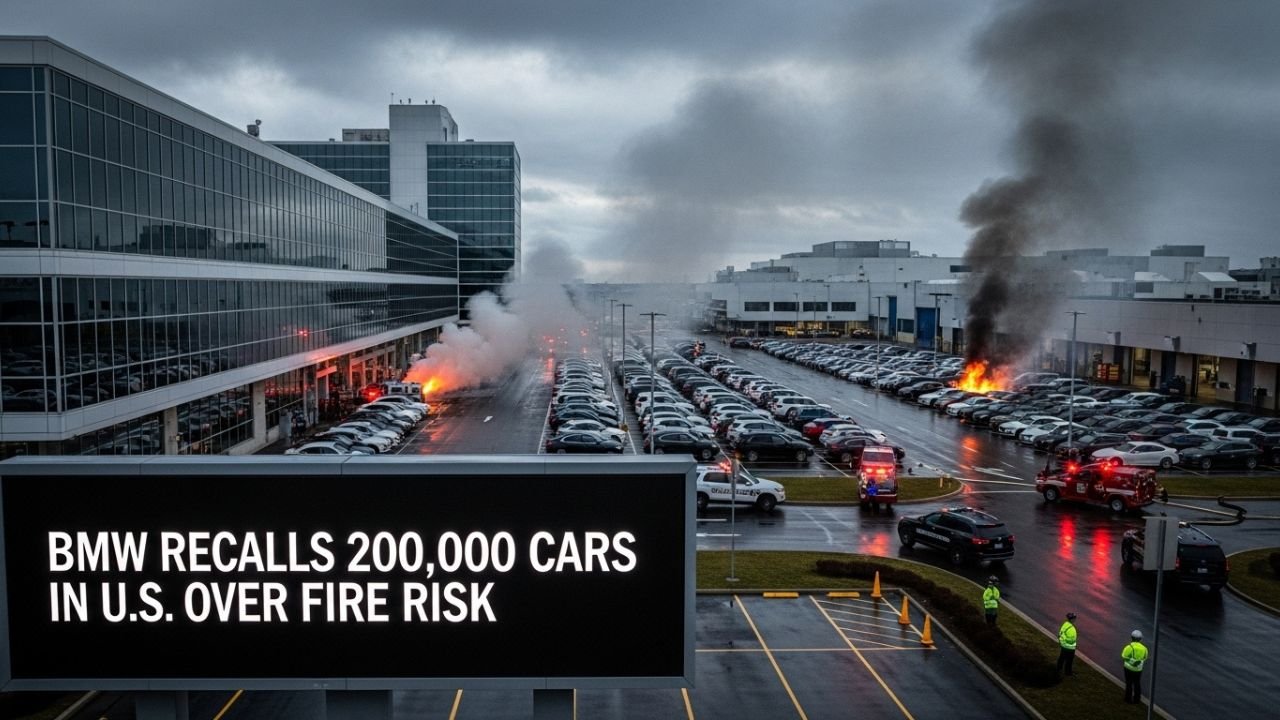BMW has long been synonymous with luxury, precision engineering, and driving pleasure. But in late September 2025, the German automaker faced an unexpected challenge that put safety at the centre of attention. The company announced a recall of 196,355 vehicles across the United States due to a defect in the engine starter relay, which could lead to a dangerous fire hazard.
This announcement has sent shockwaves through the automotive world, as the recall includes some of BMW’s most popular models from 2019 to 2022. To make matters more complex, the recall also impacts certain units of the Toyota Supra, which shares some components with BMW.
In this article, we will break down the details of the recall, explain why it matters, outline which models are affected, and discuss what BMW owners should do next.
Why Is BMW Issuing This Recall?
The root of the problem lies in the engine starter relay—a small but crucial part of a car’s electrical system. Over time, moisture and corrosion can build up in the relay, increasing the risk of overheating and electrical short circuits. This, in turn, can cause the relay to fail—or worse, start a fire.
The alarming part is that the fire risk isn’t limited to when the vehicle is in motion. According to the U.S. National Highway Traffic Safety Administration (NHTSA), the fire could start even when the vehicle is parked and turned off. That is why BMW and regulators are urging affected owners not to park inside garages or near buildings until the issue is resolved.
Which BMW Models Are Affected?
The recall covers a wide range of popular BMW models produced between 2019 and 2022. Here’s a breakdown:
- BMW Z4 (2019–2022)
- BMW 330i (2019–2021)
- BMW X3 (2020–2022)
- BMW X4 (2020–2022)
- BMW 530i (2020–2022)
- BMW 430i Coupe & Convertible (2021–2022)
- BMW 230i (2022)
Additionally, the recall also applies to 1,469 Toyota Supra models from 2020 to 2022, since they share the same BMW-designed engine components.
For many car owners, this means vehicles that were considered reliable and premium are now subject to urgent safety checks.
Read Also: New Renault Duster 2025 Ex-Showroom Price, Launch Date & Key Specs
Immediate Safety Instructions for Owners
Until repairs are made, BMW and NHTSA strongly recommend the following precautions:
- Park Outside: Keep your vehicle away from enclosed spaces like garages or carports. Parking outdoors reduces the risk of property damage in case a fire starts.
- Watch for Warning Signs: Be alert to any unusual smells, smoke, or dashboard warning lights. If you notice anything suspicious, contact your BMW dealer immediately.
- Do Not Delay Repairs: Once the recall process begins, schedule your service appointment as soon as possible.
- Stay Updated: Use the official NHTSA recall lookup tool (available from November 14, 2025) by entering your Vehicle Identification Number (VIN) to confirm if your car is affected.
BMW’s Response and Repair Plan
BMW has acknowledged the defect and is working closely with regulators to ensure a smooth recall process.
- Owner Notification: BMW will begin notifying owners by mail on November 14, 2025.
- Free Repairs: The company will replace the faulty starter relay with an improved version at no cost to the customer.
- Reimbursements: Owners who already paid for similar repairs may be eligible for reimbursement.
- Dealer Support: All authorised BMW dealerships will carry out the recall service, ensuring certified technicians handle the fix.
This proactive approach is designed to restore customer confidence, although the recall highlights broader challenges for automakers in balancing advanced technology with long-term reliability.
Impact on BMW’s Reputation
BMW is no stranger to recalls—like most major automakers, it occasionally faces technical issues. However, fire-related recalls tend to grab public attention more forcefully due to the severity of the risk.
For luxury carmakers, where brand trust and premium image are everything, such recalls can temporarily dent reputation. While most customers appreciate transparency, some may question long-term reliability.
Yet, BMW has a history of acting swiftly during crises. If handled properly, this recall may reinforce rather than weaken trust by showing that safety is non-negotiable for the brand.
Read Also:Jaguar Land Rover Cyberattack Recovery: Timeline, Impact, and Industry Lessons in 2025
Broader Lessons for the Auto Industry
This recall is not just about BMW. It reflects a larger issue in the automotive industry: the increasing complexity of vehicles. Modern cars are packed with electronics, sensors, and advanced components that improve performance—but also introduce new risks.
Key lessons include:
- Reliability of Electrical Systems: As cars become more digital, electrical malfunctions pose new safety challenges.
- Importance of Recalls: Swift recalls prevent accidents and show accountability.
- Cross-Manufacturer Risks: The fact that Toyota Supra models are included demonstrates how shared components can spread safety risks across brands.
Advice for BMW Owners
If you own one of the affected models, here’s what you should do:
- Check Your VIN: Visit NHTSA’s recall website or BMW’s official portal starting November 14, 2025.
- Schedule Repairs Quickly: Don’t wait—dealerships may face long queues once notifications go out.
- Keep Documentation: Hold onto recall letters, receipts, or emails for potential reimbursement.
- Stay Calm but Cautious: While the risk is real, not every car will catch fire. Taking precautions and following BMW’s guidance is the best path forward.
Conclusion
BMW’s recall of nearly 200,000 vehicles in the United States is a serious matter, but it is also an opportunity for the automaker to demonstrate responsibility and commitment to customer safety.
For owners, the recall may feel like an inconvenience, but prioritising safety should always come first. By parking vehicles outside, staying alert, and scheduling repairs promptly, BMW drivers can reduce risks until the issue is fixed.
In the long run, this recall serves as a reminder that even the most prestigious automakers face technical challenges. What truly matters is how they respond—and BMW is taking decisive action.




